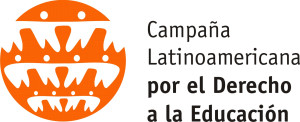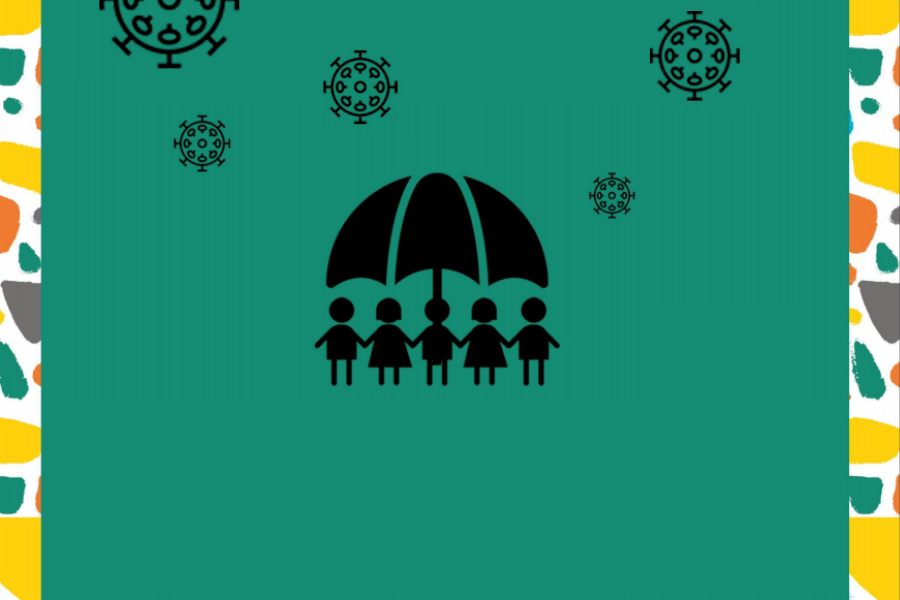
COVID-19: Guides on the education and protection of children and adolescents
April 9, 2020At this time of crisis, the National Campaign for the Right to Education (CNDE), a member of CLADE in Brazil, in alliance with the Cada Criança platform, has made available two guides aimed at families, schools, local social security agents and authorities so that they can guarantee the protection and education of children and adolescents.
“The goal is to offer verified and accessible information on how citizens linked to education can act, demand and work for the protection of all and in a collaborative way and also, by public authorities, guarantee the rights of girls and boys and adolescents in emergency situations” says CNDE.
Read below a summary of the guides in English or download here the complete document in Portuguese aimed at families and education professionals, and the guide for authorities here.
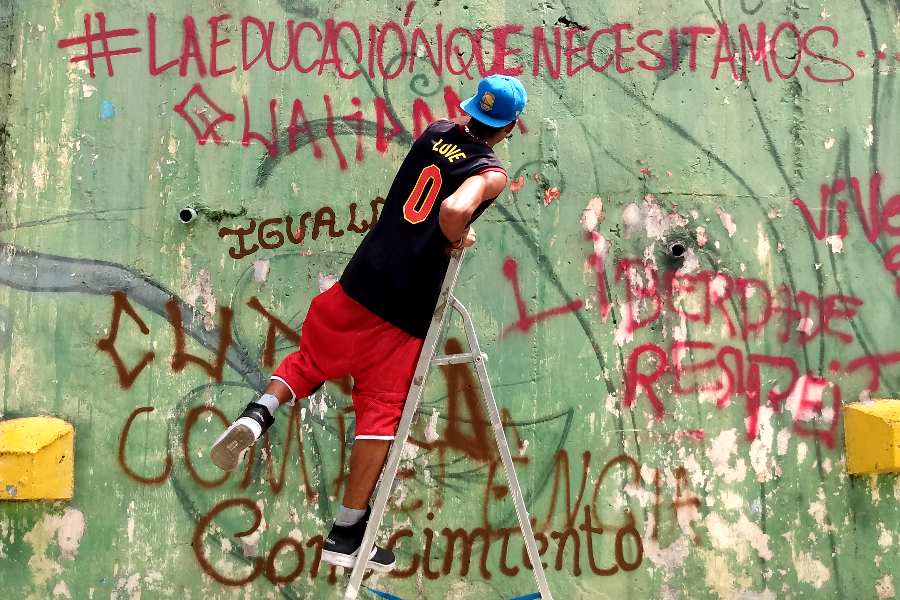
Students from Sao Paulo discuss the education they need for the world they want
November 4, 2019initiative “The education we need for the world we want”, CLADE was last Thursday, Oct. 31, at the Public School Professora Maria Augusta Corrêa, in Sao Paulo, Brazil. This public education center is one of the most diversified in the city, with a high percentage of migrant students, especially from Bolivia and Haiti.
(more…)
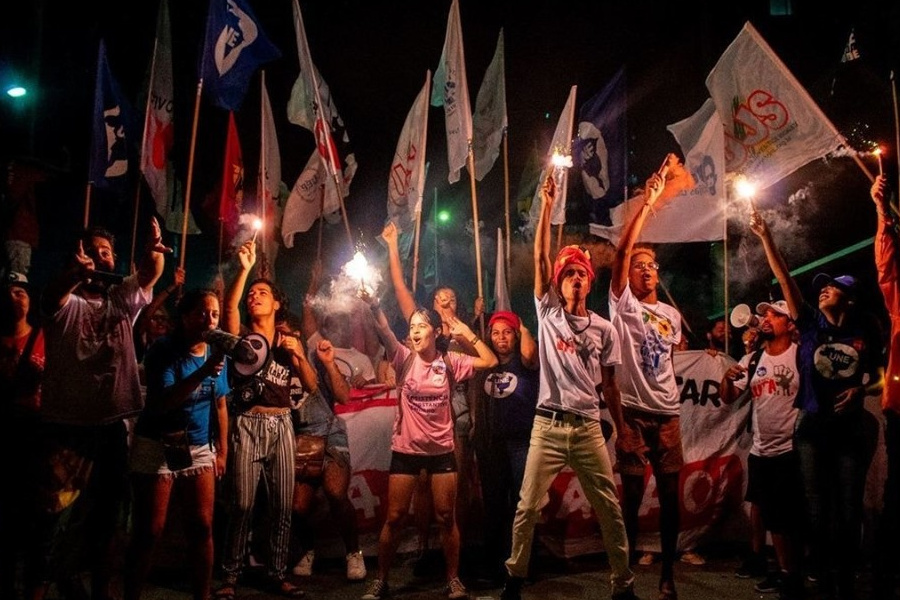
Brazil: Students, teachers unions and civil society lead the struggle for the right to education
August 16, 2019On this World Humanitarian Day, we affirm that the student, education professionals and civil society-led mobilizations that took place across the country on August 13 are a strong reaction and a sign of resistance to a government that has been making great strides towards a not desired past.
This moment is one of a huge crisis in the Brazilian democracy. Not that we haven’t experienced crisis in the past, but what we have witnessed since the impeachment of president Dilma Rousseff in 2016 is the country’s democratic foundations and institutions being weakened and a backsliding in social achievements. We had never advanced so far in strengthening democracy and advancing social rights, and we had never seen setbacks at such a rapid pace.
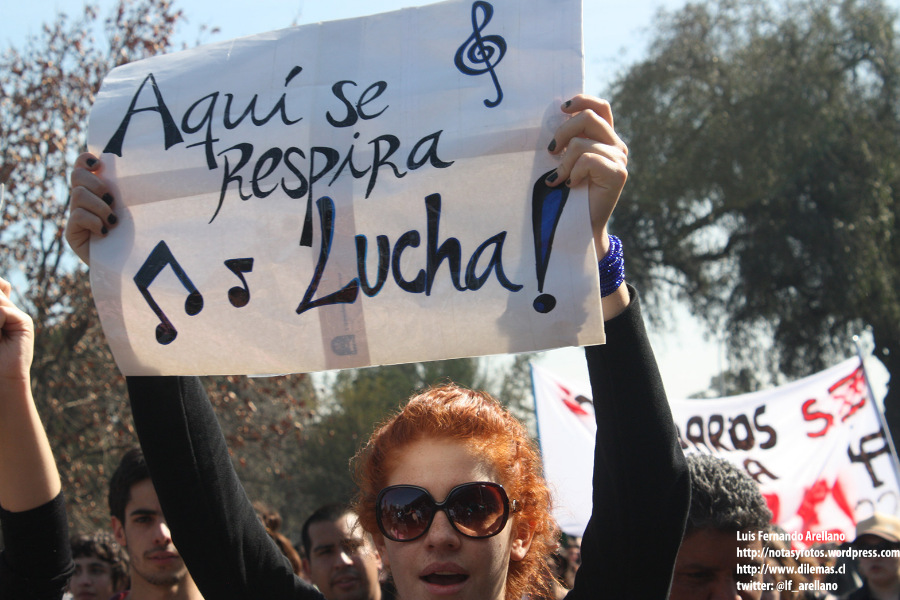
Youth from Latin America and the Caribbean transforming education
August 12, 2019In 1999, United Nations General Assembly appointed August 12 as the International Youth Day, an annual celebration aimed at promoting the role of youth in processes of change, as well as raising awareness on the challenges and contexts faced by young people.
(more…)
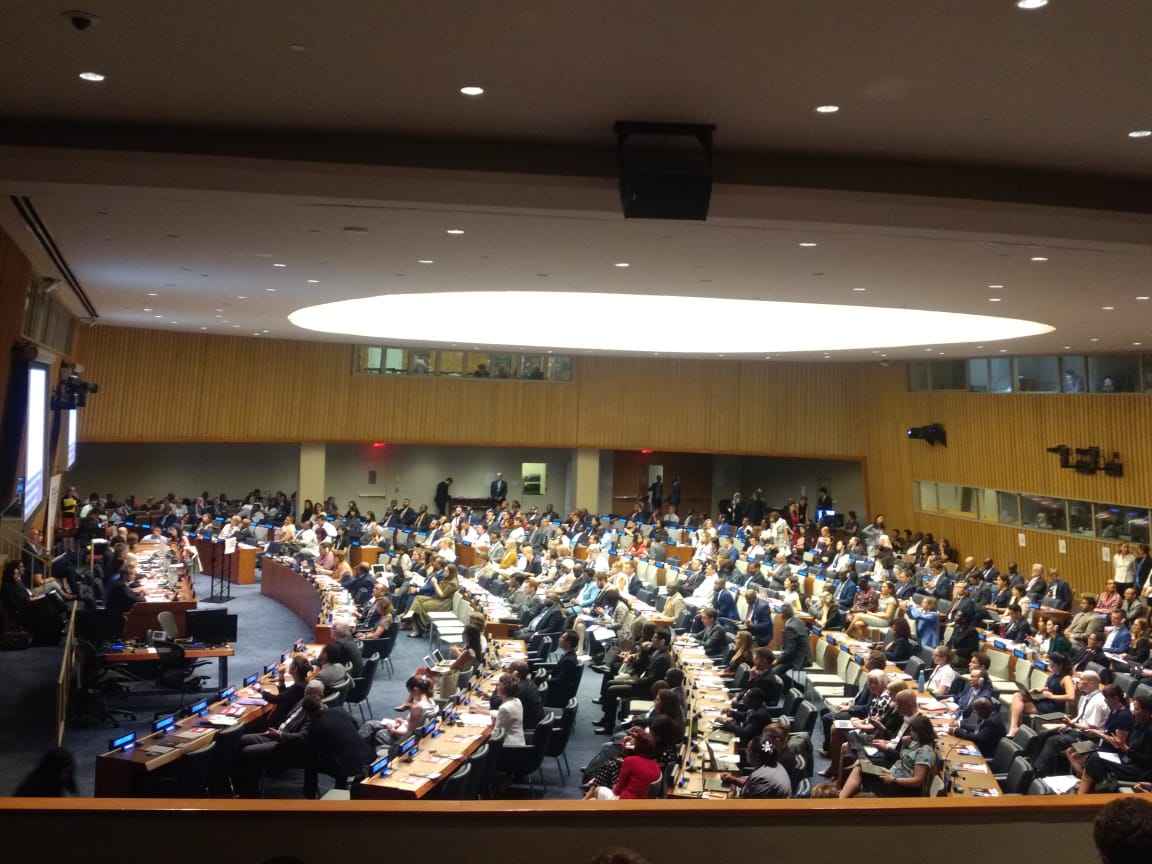
SDG 4 Review of Chile and Guatemala at the UN
July 17, 2019At the UN High-Level Political Forum, the platform to follow up SDGs across the world, Chile and Guatemala presented their voluntary national reviews about the implementation of this agenda. Four countries from Latin America and the Caribbean volunteered to participate in the 2019 review, reporting the actions taken for the achievement of the SDGs: Chile, Guatemala, Brazil and El Salvador. However, on the eve of the High-Level Political Forum, the last two countries announced that they would not participate in the review.
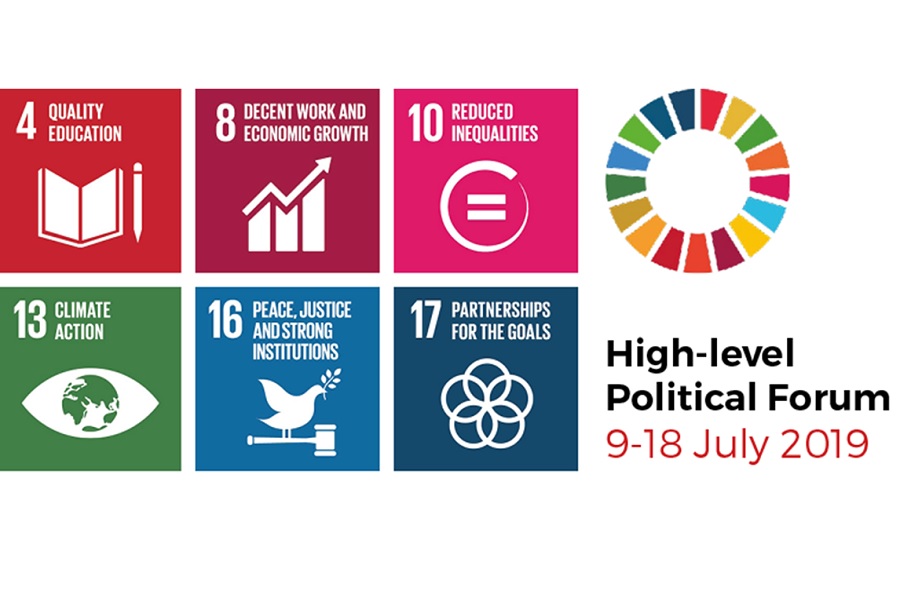
Brazil does not participate at the SDG 4 review in the UN
July 16, 2019In a session to review the status of implementation of the Sustainable Development Goal (SDG) 4, which seeks to ensure inclusive education, with equity and quality, and promote lifelong learning opportunities for all, Brazil has not pronounced.
“Brazil withdrew because it presents setbacks in terms of Human Rights. Our teachers do not have proper conditions to teach, many students do not learn and we have millions of people without access to school or illiterate,” analyzed Daniel Cara, general coordinator of the National Campaign for the Right to Education (CNDE), who follow-up the United Nations High Level Political Forum (UN), a platform for monitoring the SDGs worldwide.
The CNDE integrated the delegation of the Latin American Campaign for the Right to Education (CLADE) in the Forum, and presented a report on the status of SDG 4 in Brazil to the UN Economic and Social Council (ECOSOC) and the Human Rights Council (OHCHR). It also participated in the preparation of collective civil society reports at national, regional and global level, on the SDGs.
The Sustainable Development Goals were adopted by the UN Member States in September 2015, and must be achieved by 2030.
“We are on the eve of completing a third of the period of the agenda and the evaluation is that we have advanced less than necessary to guarantee the human rights which we seek to move forward. In addition, the progress that has been observed remains uneven, and several developing countries have faced political and economic crises that even show setbacks in relation to the commitments assumed at the international level. Unfortunately, Brazil is one of those cases,” said Andressa Pellanda, executive coordinator of the National Campaign.
>> See the full report in Portuguese and English
Read more:
Brasil: In a message to the UN, National Campaign expresses concern about the rights of children and adolescents
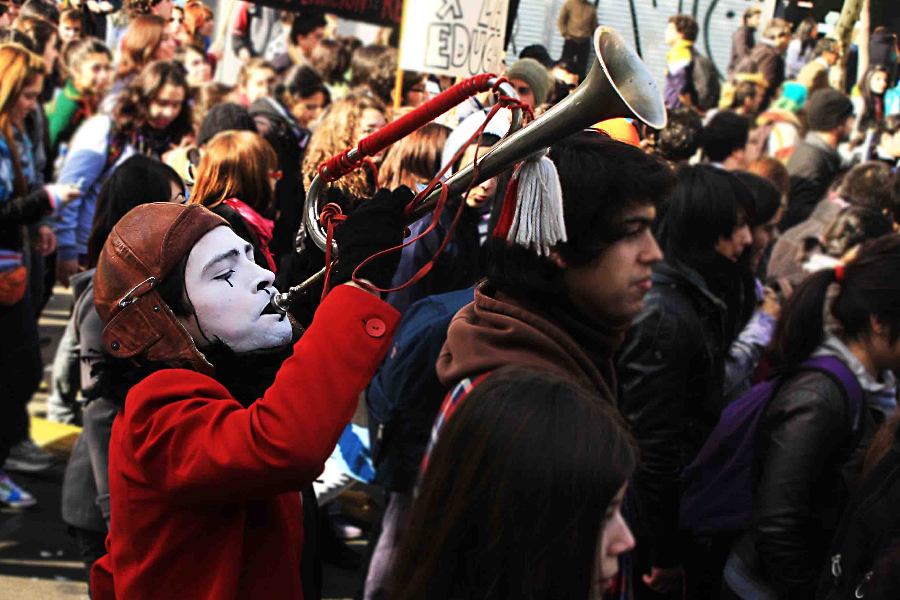
In new publication, CLADE shares experiences, strategies and lessons learned on the fight for the right to education
July 10, 2019The Latin American Campaign for the Right to Education (CLADE) launches the publication “Civil Society Advocacy for the Human Right to Education: Stories and Lessons Learned from Latin America and the Caribbean – Volume 3”.
The document is available:
In this volume, members of CLADE tell their experiences on the fight for the right to education: the challenges, advances and lessons learned, the strategies and recommendations that remain for other civil society movements and organizations. It presents cases of advocacy, communication, research and mobilization in 10 countries of Latin America and the Caribbean, as well as 3 regional experiences, driven by CLADE and 2 regional networks that are members of the Campaign: Espacio sin Fronteras and ALER.
The document is the result of a permanent effort by CLADE, to record and provide visibility to the journey of its members in their advocacy and capacity building efforts; and, on the other hand, to promote the reflection on their success and mistakes, in a process of self-evaluation and capacity building by the network.
“In times when we witness a growing democratic weakness in Latin America and the Caribbean, when laws are passed to hinder the right to demonstration and social participation, when social movements, activists and students are persecuted and criminalized, and there are so many restrictions to participation, it is worth showcasing civil society action and its positive impact on education policies,” says CLADE.
The Campaign distributed the publication, during its participation in the High-Level Political Forum, which takes place until July 18 in New York, with an emphasis on reviewing the status of compliance with Sustainable Development Goal 4, related to education.
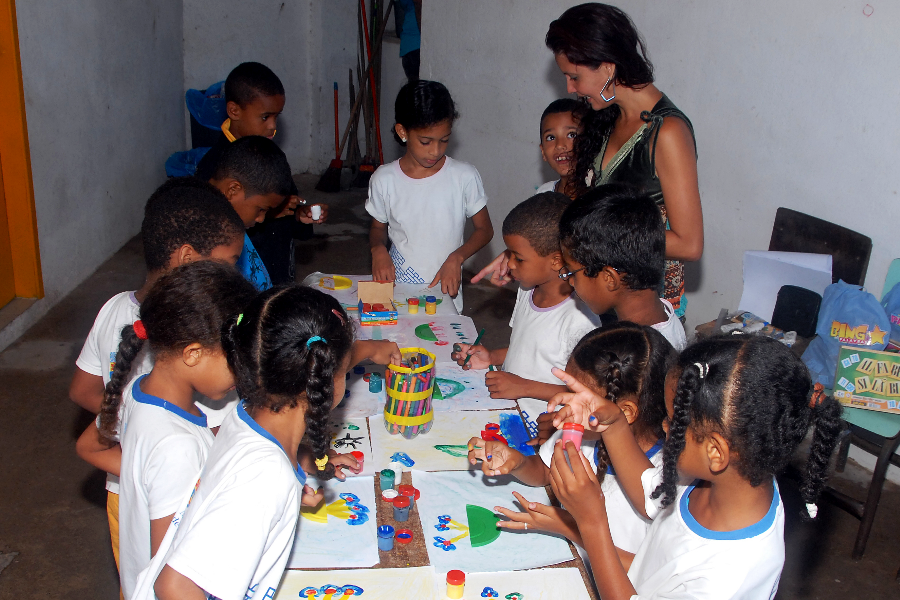
Brazil: In a message to the UN, the National Campaign expresses concern about the rights of children and youth
June 3, 2019In response to a call from the Office of the United Nations High Commissioner for Human Rights (OHCHR), the National Campaign for the Right to Education from Brazil sent to the agency information on the state of children’s rights in the country regarding the areas that will be the focus of the Sustainable Development Goals (SDGs) review in July this year.
The review will take place at the UN High-Level Political Forum (HLPF), to be held July 9-18 in New York, with a focus on SDG 4 (on education) as well as goals 8 (decent work and economic growth), 10 (reduction of inequalities), 13 (climate action), 16 (peace, justice and solid institutions) and 17 (partnerships to achieve the objectives).
OHCHR is preparing a report on children’s rights and the SDGs to be presented at the HLPF and, to contribute to its content, a call was made asking civil society to submit their diagnoses and recommendations.
Inputs sent by the National Campaign to the agency indicate strong risks that SGDs 4, 8 and 16 will not be achieved within the expected period, in the country, due to a series of measures implemented by the current government.
Furthermore, they present alarming data on the human rights situation in Brazil, such as: non-compliance with the National Education Plan (PNE, by its Portuguese acronym) 2014-2024; the reduction of public expenditures on education and the non-implementation of the Initial Student-Quality Cost (CAQi, by its Portuguese acronym) and Student-Quality Cost (CAQ, by its Portuguese acronym) mechanisms, which establish parameters for the financing of quality public education; thousands of children and adolescents without access to basic education; the advancement of the “Escola sem partido” (School without a Party) initiative, which intends to prohibit the discussion of issues such as politics, racial equality and gender equality and identity in schools; a reductionist perspective of early childhood education and setbacks for inclusive education and the inclusion of people with disabilities in the public system; the attempt to regulate home schooling as a way of encouraging the privatization of distance education and avoiding socialization and students’ interaction in plural contexts; the worsening situation of children and adolescents in precarious working conditions, with a labor reform that flexibilizes rights; and the closure of spaces for civil society participation in public policies, as well as the elimination of participatory administrative bodies, seriously affecting areas such as: human rights, racial equality, indigenous peoples, rural populations, LGBTI community and the environment.
“In this alarming context, we request that the OHCHR recommends the Brazilian State to restorate and strengthen democratic instances of civil society participation, as well as the reversal of current setbacks. We also demand that the government respect the UN Convention on the Rights of the Child and the observations made to Brazil by the Committee that monitors the Convention. The Committee recommended that the Brazilian State assume its responsibility to guarantee adequate financial resources for the implementation of the National Education Plan, including situations of economic crisis and political instability”, said Andressa Pellanda, executive coordinator of the National Campaign for the Right to Education.
In the report sent to the UN, the Campaign presents recommendations for the guarantee of the right to a lifelong free, inclusive, equitable and quality education for all, from a perspective of rights.
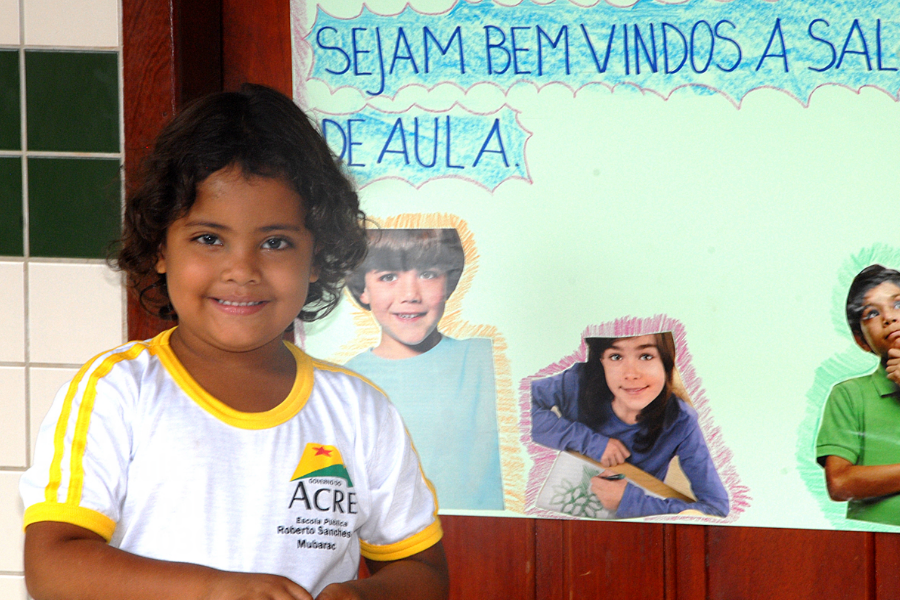
Brazil: Government tries to repeal mechanism that establishes minimum funding needed to ensure quality education
March 28, 2019By calling an extraordinary and secret meeting of the National Education Council for the afternoon of last Tuesday, March 26, the Brazilian government tried to repeal the “CAQ” (Cost student quality) and the “CAQUi” (Initial cost student quality), mechanisms of the National Education Plan that translate into values how much the country should invest per student per year, in each stage of public education, to insure a quality education (more…)
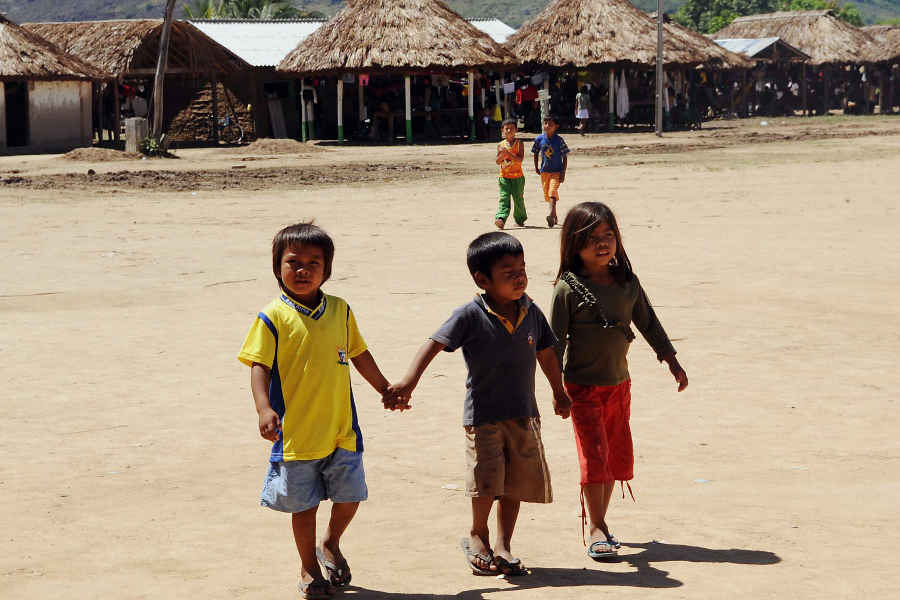
G20 and education: CLADE’s fight for adequate resources for this right
February 7, 2019Activists from Latin America and the Caribbean promoted actions of advocacy, mobilization and communication in the context of the G20, making the world’s largest economies recognize education as an essential human right to promote development with inclusion, prosperity and peace (more…)





